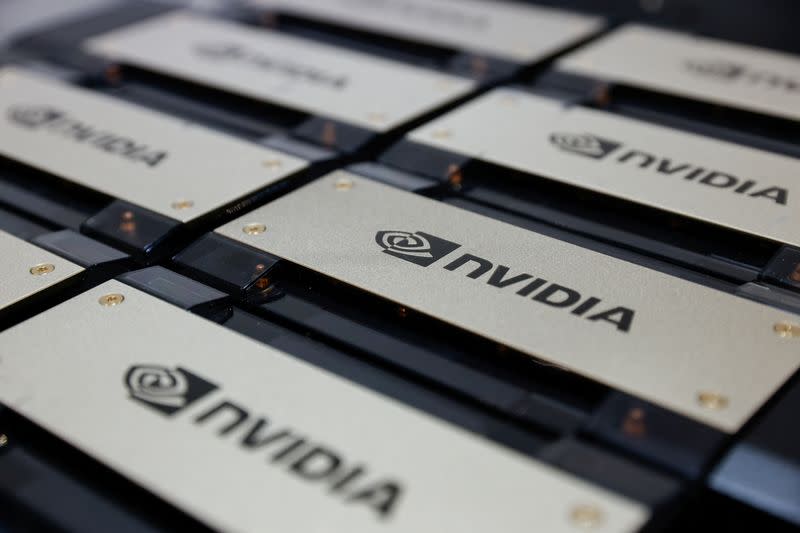Nvidia tests chatbots in chip design process in bid to use more AI

By Stephen Nellis
(Reuters) - Nvidia on Monday published new research into using chatbots that can generate human-like responses in the process of designing semiconductors.
Modern chips are circuits built out of tens of billions of transistors, and figuring out how to arrange them on a piece of silicon is one of the hardest tasks in the technology industry, taking thousands of engineers up to two years to complete.
Nvidia's chips are among the most complex in the industry and have become central to power technologies like ChatGPT.
On Monday, Nvidia presented research where it took what is called a large language model, the technology behind chatbots, and augmented it with 30 years of data from its archives of designing chips. One of the first applications is to use the company's long history in answering questions.
"It turns out a lot of our senior designers spend a fair amount of their time answering questions from junior designers," Nvidia's chief scientist Bill Dally told Reuters. "So the protocol was a junior designer asks the chatbot. This can save senior designers a huge amount of time."
The key finding in the research was that a relatively modest chatbot could become more accurate than an advanced chatbot by specifically adding in lots of specific data from the company's experience, which Nvidia said can help control the cost of the system.
Another feature the company showed was using artificial intelligence to generate code. Dally said a big chunk of engineers' time is dedicated to finding a part of the chip that doesn't work and using testing tools to find out why.
To carry out that testing, AI systems can quickly write piece of code called a script that operates the tool.
"Our goal here is not to automate the process or replace people, but to take the people we have and just give them super powers to make them more productive," Dally said.
(Reporting by Stephen Nellis in San Francisco; Editing by Marguerita Choy)


